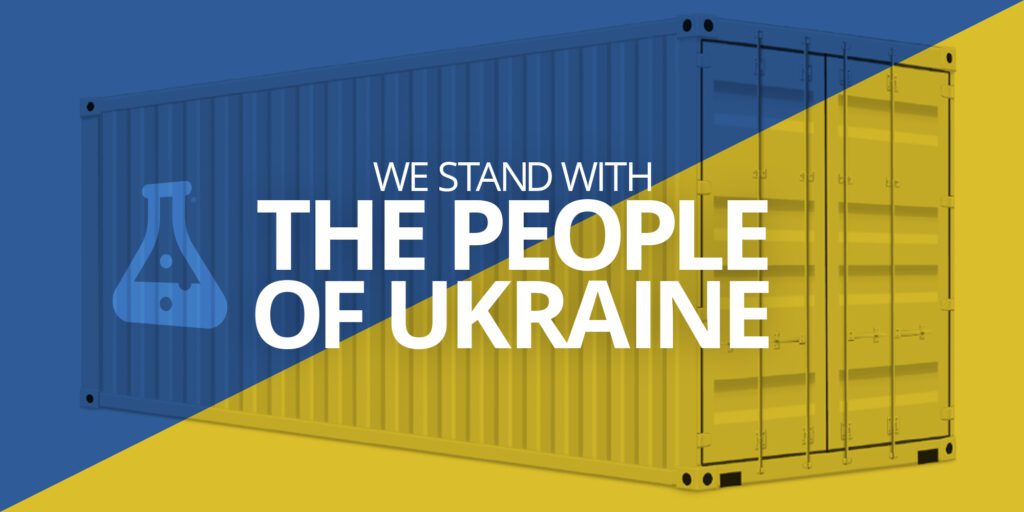Ongoing Russian attacks have left Ukraine desperate in many ways since late February, with untold thousands dead and millions displaced. Organizations around the world have offered relief — which got us thinking about how we could contribute our own healthcare resources and expertise.
Healthcare in Ukraine has become nearly impossible to access during the war. More than 320 attacks on healthcare resources occurred in the conflict’s first 100 days, violating international humanitarian law. Such hostilities would have devastating effects anywhere on earth, depriving people of treatment when it’s arguably most necessary. But for Ukraine, a country that was already highly susceptible to several health crises, these effects are compounded.
The need for quality healthcare in Ukraine is dire, yet the number of providers and available services is dwindling dangerously. For Worksite Labs, a company founded to increase access to healthcare where it’s needed, this created the perfect opportunity to do exactly that.
So, we partnered with several other organizations to send three mobile, fully equipped and staffed medical units overseas to serve Ukrainian civilians and troops.
The state of healthcare in Ukraine
Before the Russo-Ukrainian War began, Ukraine was already facing several pressing health crises.
The most universal of these is the COVID-19 health crisis. A vaccination rate of less than 37% has complicated Ukraine’s relationship with the pandemic. (In some regions, as little as 20% of residents are vaccinated.) On February 10, just two weeks before the war began, Ukraine reported its highest daily case count.
Now, because dozens of facilities and healthcare providers have been targeted, anyone seeking vaccination or treatment for a positive case is less likely to find it. Further, refugees have been largely forced to hide out in crowded spaces that increase the risk of COVID-19 spread.
War conditions threaten to worsen other ongoing health concerns in Ukraine. Diseases that have long plagued the country, including polio, tuberculosis and HIV, are less treatable and more communicable. Those who need medications to keep their health in check have greatly reduced access to them. And the health of newborns and new mothers is at risk, especially given deadly attacks on maternal and children’s hospitals.
Ukrainian civilians and troops with a spectrum of health needs have all but lost access to care. So, we and our partner organizations felt we needed to act.
Creating vital access to care
Worksite Labs exists so people who need (but don’t necessarily have) access to healthcare can get it. Our U.S. operations reflect this ideal through direct-access, insurance-optional services and community testing sites treating vulnerable populations, among other efforts.
The war in Ukraine gave us a window to take our mission global and serve a desperately needy population. Other organizations joined us to pursue the opportunity: Clinic in a Can, a manufacturer of modular healthcare facilities run by CEO Michael Wawrzewski; Hospitals of Hope, a non-government organization for which Wawrzewski is also CEO; Heart to Heart International (HHI), a healthcare relief nonprofit; The Gorta Group, a European collective focused on third-world development; and Heaven Sent Ministries (HSM), an international missions agency.

Worksite Labs donated one of three mobile medical units to serve civilians and troops in Ukrainian war zones — the same kinds of containers that housed our first labs. We did this to help provide general medical care, basic diagnostic services and COVID-19 antigen testing, as well as the space needed to make all that happen.
Our partner organizations helped us fully staff and equip the three portable units. The overall shipment included:
- 1 fully certified mobile diagnostic laboratory (courtesy of Worksite Labs).
- 2 portable, modular medical clinics with vital medical supplies (courtesy of Clinic in a Can).
- 2,000 antigen tests.
- 3,600 hygiene kits (courtesy of HHI).
- 4,800 meals (courtesy of HSM).
HHI also outfitted the medical clinics and laboratory with volunteer medical personnel. It, along with The Gorta Group, is overseeing the monthslong trek overseas.
A worthwhile journey (and hopefully more to come)
Getting our materials to Ukraine is an ongoing process that involves a whole lot of planning, partnership and patience — which we believe will lead to enormous payoff.
Our shipment originated in Wichita, Kansas, and was taken to Kansas City where it was loaded onto a train bound for Norfolk, Virginia. From there, the shipment was transferred to a cargo ship that crossed the Atlantic Ocean. It eventually docked in Europe and arriving at a checkpoint in Slovakia.
HHI sent a representative to receive the shipment in Slovakia, after which the shipment was loaded onto 40-foot trailers. Adapted to pull not just the mobile units and loaded supplies, these trailers also carry power generators and a large fuel and water supply. From the checkpoint, The Gorta Group took the shipment to the Slovakia-Ukraine border, where it’s currently waiting to cross. The Gorta Group is also communicating with the Ukrainian Ministry of Health to pinpoint safe locations with the greatest healthcare needs.
We’re eager to see our medical units and materials give displaced citizens and weary troops the medical attention they’ve been missing. Our partner organizations are equally enthusiastic, so much so that HHI is preparing for another Ukraine relief effort. It plans to send 12 more mobile medical units, including additional trauma units and maternal health clinics, to Ukraine in the next few months — and is currently seeking funding.
Click here to help give Ukraine the healthcare access it needs.




